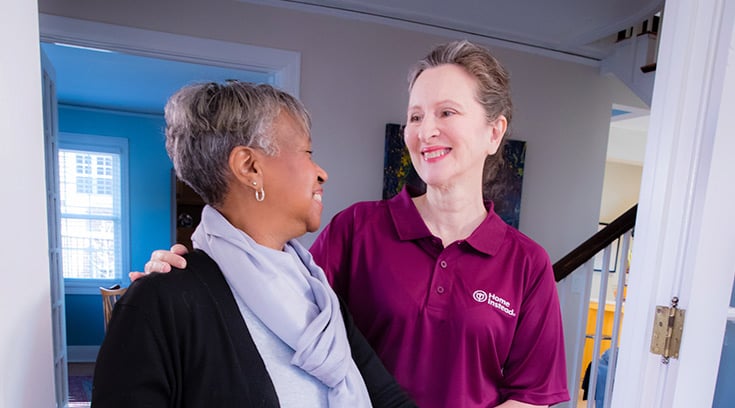If you’re caring for a loved one with a chronic medical condition like COPD, you might feel drained much of the time. The medications, the appointments, the sheer logistics of wrangling the medical equipment involved – it all can seem overwhelming to manage. Fortunately, a few simple strategies can help reduce the stress a chronic illness can bring to caregivers and their loved ones.
The Challenges of COPD Caregiving
According to the Centers for Disease Control (CDC), chronic obstructive pulmonary disease, or COPD, refers to a group of diseases that cause airflow blockage and breathing-related problems. It includes emphysema and chronic bronchitis.
When a loved one receives a diagnosis of COPD, you may face a number of changes and challenges. These four tips could help you get organized.
- “Outsource” Medication Management
Medication management represents one of the more confounding aspects of caring for a family member with COPD, since prescription therapy may extend beyond pills to include on-demand treatments like a rescue inhaler. One solution? Instead of trying to figure out a complicated medication schedule on your own, reach out to a professional. For more information, check out SimpleMedsSM - Get Help Coordinating the Logistics of COPD
Because COPD is a progressive disease (meaning it only gets worse with time), your loved one will likely face increasing challenges related to mobility, both at home and away.
Simply figuring out the logistics of taking a trip to the grocery store with oxygen tanks in tow may feel insurmountable. How many tanks do you need? How is this going to work when Mom needs both hands on her walker? You can reduce the stress of a trial-and-error phase by involving professionals for help from the start.
Consult a professional home care provider such as your local Home Instead® franchise. Many of their dedicated Care Professional have experience in helping their older adult clients with walkers, oxygen hoses, tanks and more. They will be delighted to advise you about logistical strategies that can help at home and when getting out and about. By seeking professional advice, you can reduce the stress of figuring everything out on your own. - Set Up a Transportation Support System
A diagnosis of COPD may mean more doctor appointments or trips for respiratory therapy. If you’re like many family caregivers, you may not be able to take time off work frequently to take your aging parent to a multitude of medical appointments. Setting up a support system strictly for transportation can help reduce your stress in this area.
If you don’t want to impose on other people to help get your loved one to appointments, consider hiring a Home Instead® Care Pro to provide transportation. These professionals will not only take your older adult relative to any necessary appointments, but they also will take notes about how the visit went, and what instructions were given. - Prioritize Time for Self-Care
One great way to do this is to set up one day per week to devote to your own needs. Have a friend or family member relieve you from your caregiving duties, or get a professional caregiver to provide respite care. Then use that “time off” to do something you really enjoy. Self-care doesn’t have to be elaborate; sometimes just soaking in a bubble bath for an hour can act as the best stress-buster imaginable. Helping an older adult family member manage a disease like COPD isn’t always easy, but it can be managed with the right support. Instead of trying to figure everything out from scratch, involve the appropriate professionals for advice and organizing strategies. This will help you feel more in-control and less stressed by the situation, which in turn will improve everyone’s quality of life.
In-Home Care for Chronic Conditions




